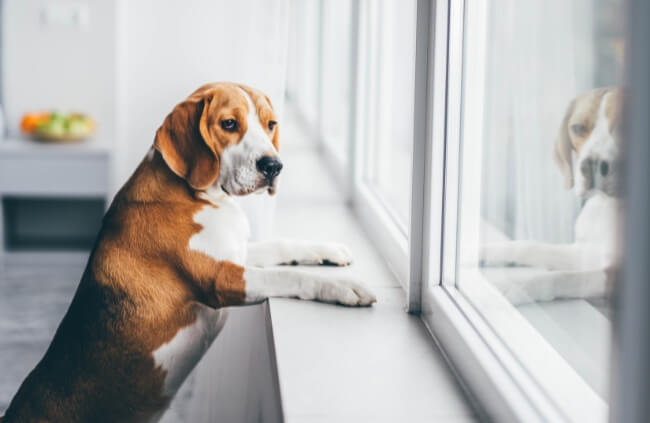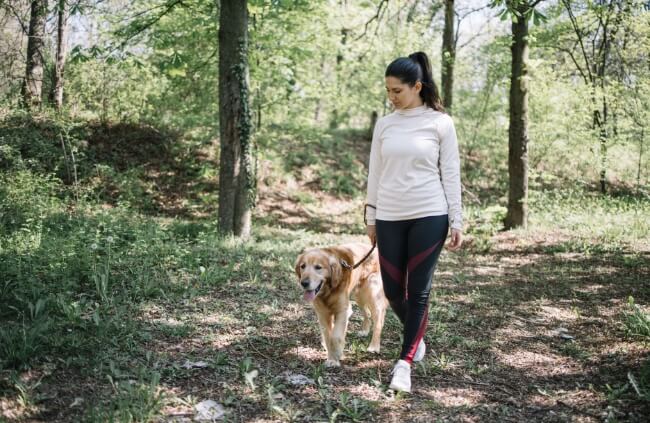Losing a beloved pet can be extremely hard. But you are not the only one who feels this pain. Your other furry family members are experiencing the loss too. It is important to remember that grieving dogs need empathy and attention.
Australian pet owners need to recognise grieving dog symptoms, and how they can support them during this difficult time. Below, I have gathered information about dog grieving symptoms that will help you support your dog.
More...
Do Dogs Mourn?

Yes, dogs do mourn the loss of a companion. While they may not understand death in the same way we do, they can sense the absence of their friend. Dogs form strong bonds with their pack members, whether they are other pets or humans.
When a member of their pack is gone, they can experience an intense sense of loss.
Dog Grieving Symptoms
Just as humans experience grief with the loss of a pet, dogs can too. They may not understand death, but they do know that their friend is no longer there, and they miss them. Here are some ways pets may react to the loss of a canine companion and how you can support them:
- Changes in Behaviour - It is common for other pets to have changes in behaviour. They might become more withdrawn, anxious, or even exhibit signs of confusion. Some pets may act out or display behavioural issues as a result of the stress they are feeling.
- Searching and Whining - Dogs, in particular, may search endlessly for their lost friend. They may whine or display restlessness. Cats and other animals show their grief with excessive vocalisation or increased clinginess.
- Loss of Appetite - A grieving pet may lose their appetite. They may only eat a little bit or refuse food altogether. This can be very concerning, especially if it leads to weight loss and health issues.
- Lethargy - Your other pets might become more lethargic than usual. They may sleep more or seem less interested in play or regular daily activities.
- Become More Affectionate - Pets often become more affectionate during times of loss. They may want to be close to you or other family members. Doing so provides them with comfort and security.
How to Help a Grieving Dog

- Offer Comfort and Attention - Spend quality time with your grieving dog. Give them extra attention, cuddles, and reassuring pats. This can help ease their stress and reassure them that they are still loved.
- Maintain Your Daily Routine - Stick to your regular daily routine as much as possible. Pets find comfort in predictability, and maintaining their daily schedule can provide a sense of normalcy.
- Provide Distractions - Play with your grieving dog and provide them with activities that will keep them distracted. These distractions can help lift their spirits and reduce their grief.
- Consult Your Veterinarian - If your pets' behaviour changes significantly and it is affecting their well-being, it is a good idea to consult with your veterinarian. They can offer guidance and, if necessary, recommend treatments to help your grieving dog.
Is It Okay for My Living Dog to See My Dog Who Passed Away?
Whether or not to let your living pet see your deceased pet is a personal decision. It will depend on your pet's behaviour and how they are likely to react. Seeing their deceased friend might give them closure.
But it may also upset and confuse them. If you are not sure what to do, it is a good idea to ask your vet for some advice.
How Long Do Dogs Grieve?
Just like humans, grief in dogs will last for different amounts of time. It might take a grieving dog a few weeks, a few months, or even longer to feel better after losing their friend. It really depends on the dog and the bond they had with their friend.
Thinking About Getting a New Pet?

If you have a grieving dog, you might be considering getting a new pet. But keep in mind; it is a big decision. Losing a dog can make everyone feel sad, and your dog might miss their friend a lot. It is okay to think about getting a new pet, but it is important to wait until the time is right.
Taking care of a new pet is a big responsibility. They need your attention, care, and love, just like your old dog did. So, it is best to wait until everyone has had plenty of time to grieve. This way, when you bring a new pet into your home, you can give them all the love and care they need.
Give Love and Attention to Your Grieving Dog
How do I help my dog grieve the loss of another dog? Helping a grieving dog can be challenging and extremely sad. Dogs experience the pain of separation and loss just as we do. By recognising the symptoms and offering comfort and support, you can make their journey easier.
Remember that the grieving process takes time, and each dog is unique. By providing love, understanding, and patience, you can help support your grieving dog.
